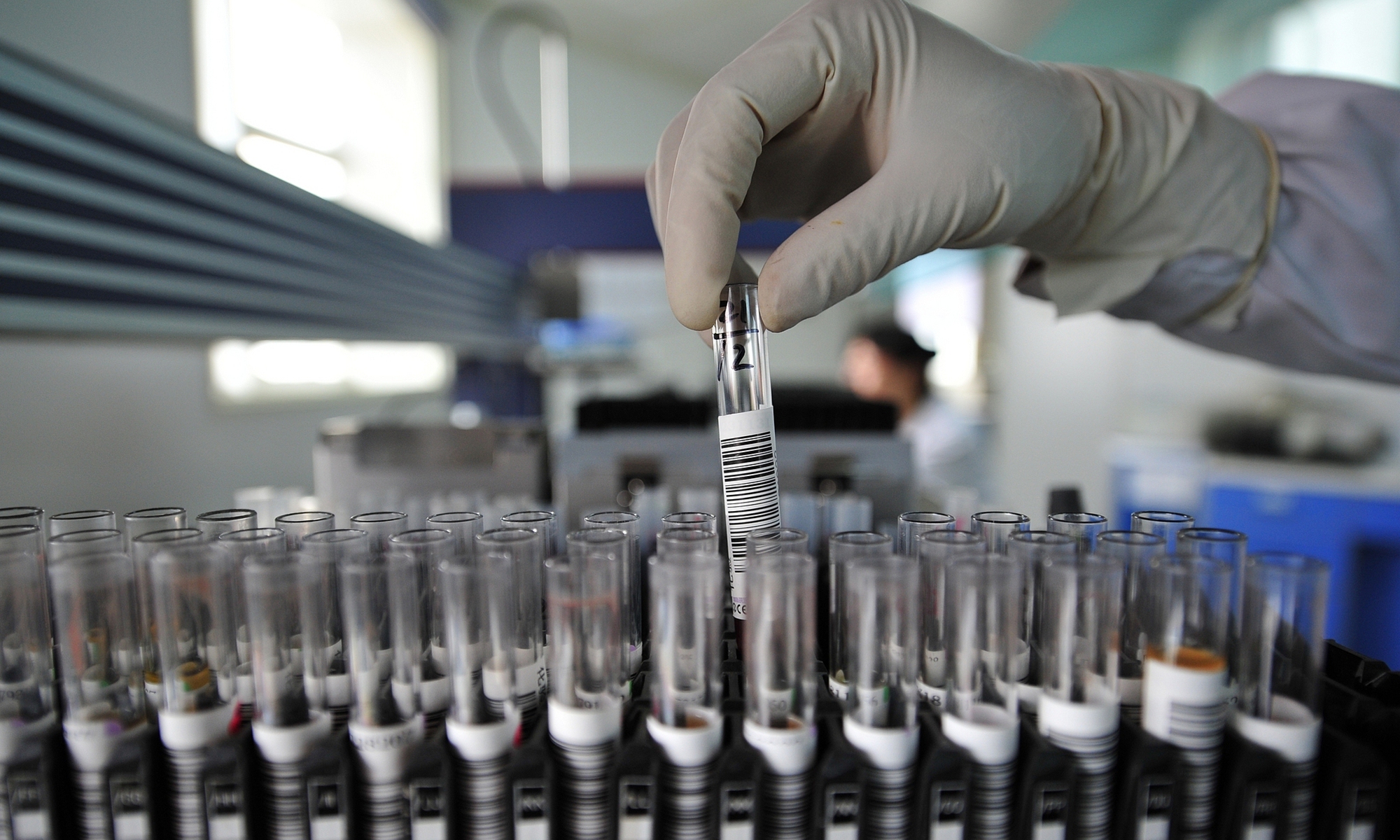
Photo:VCG
In a recent discovery in Wenzhou,
mk East China's Zhejiang Province, a cancer patient with a blood type known as para-Bombay phenotype was found. This blood type, rarer than the "Panda Blood" (Rh-negative blood), is often referred to as "Dinosaur Blood."
According to local media outlets on Friday, after the patient was diagnosed with this extremely rare blood type, the hospital where the patient was being treated immediately contacted the Wenzhou blood station to inquire about the availability of this rare blood type in their stockpiles.
Fortunately, the blood station had recently frozen and stored this extremely rare blood type to meet the needs of patients.
"We have a bag of frozen red blood cells with this blood type in our blood stockpile. If needed, we can thaw it and supply it to the clinic at any time," said a worker from the blood station, local media reported.
The next morning, the Wenzhou blood station received a request from the clinic. They retrieved the bag of the "Dinosaur Blood" from the blood storage freezer below -65 C. After a series of thawing, washing and glycerol removal processes, the blood was sent to the clinic to provide the patient with blood for surgery.
While regular red blood cells have a shelf life of only 35 days, para-Bombay phenotype red blood cells can be stored for up to 10 years.
Individuals with this blood type may face significant challenges when in need of a blood transfusion, as it is difficult to find compatible blood in the general population. In such cases, it is best to use blood lacking the H antigen or opt for autologous blood transfusion.
Currently, only four individuals with this blood type are registered at the Wenzhou blood station.
The Bombay blood type was first discovered in Bombay, India in 1952. In 1961, a blood type similar to Bombay blood type but not identical was found, known as para-Bombay phenotype. This blood type lacks or has minimal A and B antigens on red blood cells and is missing the H antigen, making it easily mistaken for type O blood in routine blood typing, posing a safety risk in clinical blood transfusions, reports said.
According to literature, the frequency of Bombay blood type in Bombay is approximately one in 10,000, one in 1 million in European populations, and one in 300,000 in Japanese populations.
With only a few reported cases of Bombay blood type and para-Bombay phenotype in China, these blood types are extremely rare.
In May 2023, a 64-year-old patient with the "Dinosaur Blood" was unexpectedly discovered in Shenzhen, South China's Guangdong Province.
Global Times

